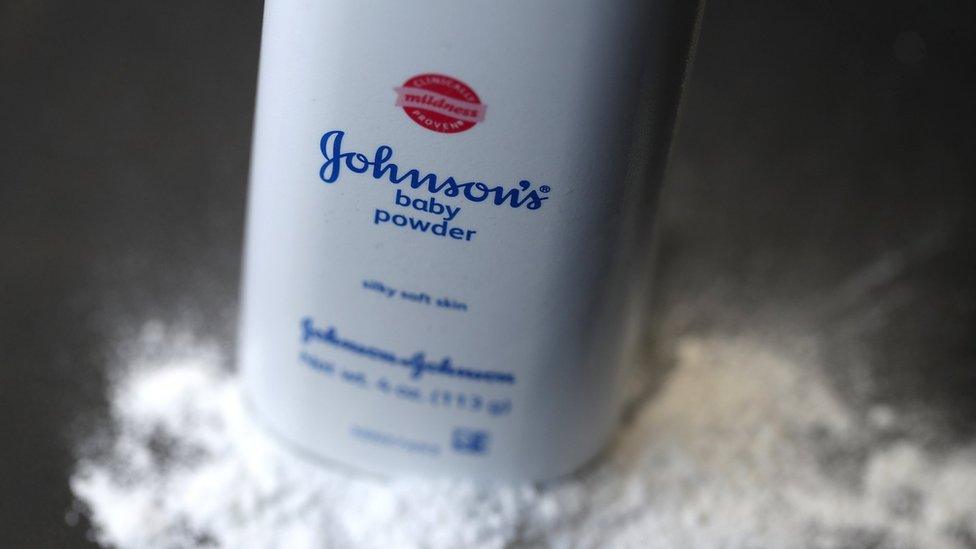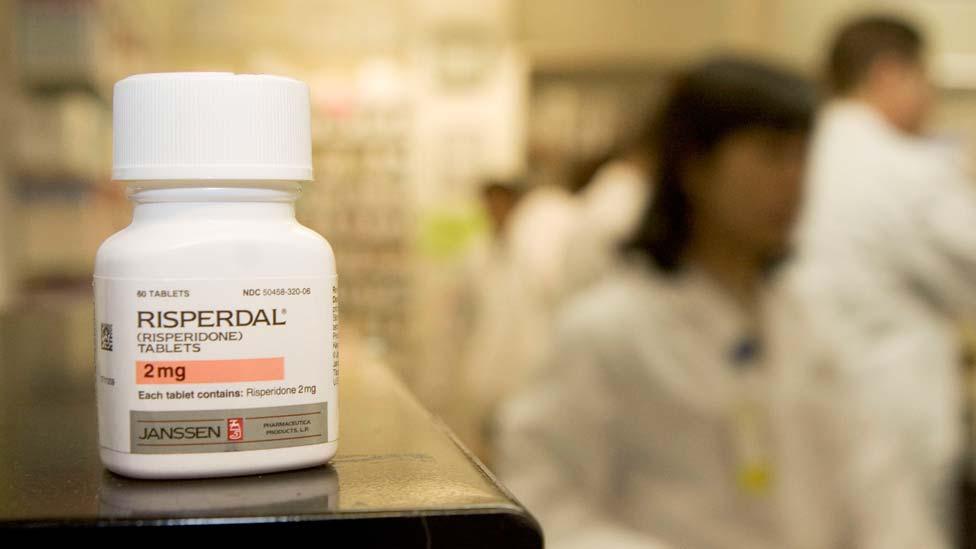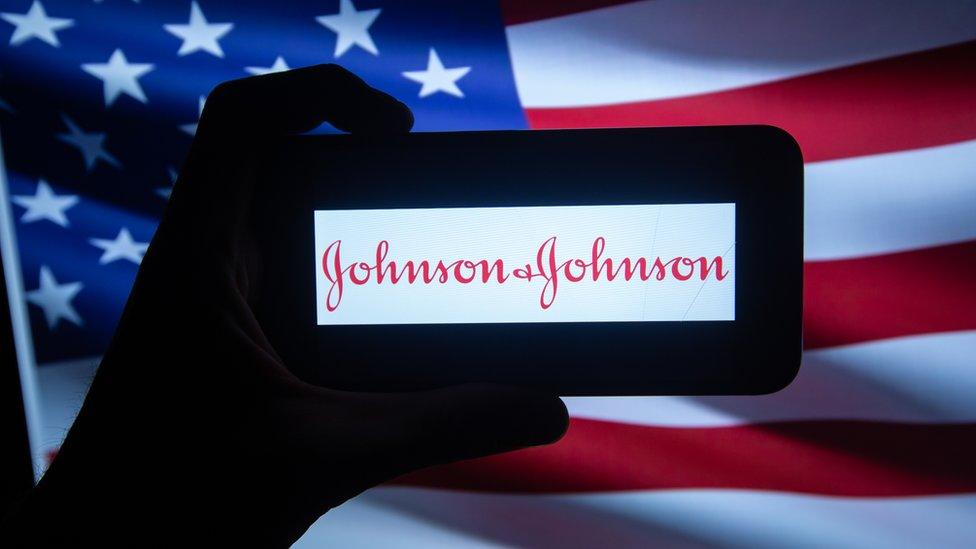Asbestos discovery triggers Johnson & Johnson baby powder recall in US
- Published

Health care giant Johnson & Johnson has recalled 33,000 bottles of baby powder in the US, after health regulators found trace amounts of asbestos in a bottle purchased online.
Government officials said customers should stop using powder from the affected batch "immediately".
J&J said, external it had launched a review and prior tests have not found asbestos.
The firm is facing thousands of lawsuits from people who claim its talc products caused cancer.
Johnson & Johnson has strongly denied those accusations.
The firm said it had initiated the voluntary recall of one lot of baby powder, produced and shipped in the US in 2018, out of "an abundance of caution".
It said it was working with the Food and Drug Administration (FDA) to determine the integrity of the test and the validity of the results finding asbestos, including whether the product was counterfeit and if the bottle's seal had been broken.
"Years of testing, including the FDA's own testing on prior occasions - and as recently as last month - found no asbestos," it said.
The FDA has been testing dozens of products for asbestos, a known carcinogen amid rising concerns among the public. It said there was no indication that the product was counterfeit or had been tainted during testing.
The FDA "stands by the quality of its testing and results", it said.
It is not aware of any adverse events relating to exposure to the lot of affected products, it added.
It urged customers with products from lot #22318RB to contact Johnson & Johnson for a refund.
Shares in Johnson & Johnson fell more than 3% in morning trade.
Legal fight
The recall is the latest bad news for Johnson & Johnson, which is facing billions of dollars in legal claims over other products, including opioids and vaginal mesh implants.
A jury this month awarded $8bn to a man over claims he was not warned that an anti-psychotic drug could lead to breast growth.
As of February, the firm faced more than 13,000 lawsuits over contamination of its talc-based products, including baby powder, with cancer-causing asbestos.
The firm has maintained that its products are safe, but investigations by the New York Times and Reuters last year found that the risks of asbestos in its talc products had worried the company for decades.
Shortly after, the Department of Justice said it was opening an inquiry into the company's knowledge of asbestos risks in its talc products.
The claims have met with mixed fates in court. Some juries have awarded millions in damages, while others have denied the claims, external.
- Published9 October 2019

- Published27 August 2019
